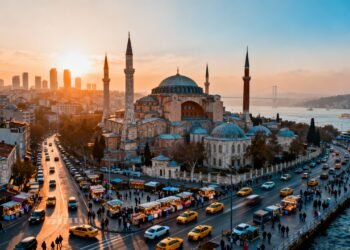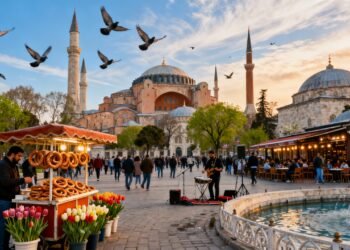Key Takeaways
- Learn when and why to visit Istanbul for the best experiences, from spring blooms to autumn festivals.
- Discover insider tips for navigating Istanbul’s mosaic of enchanting neighborhoods.
- Find essential info on top sights—Hagia Sophia, Blue Mosque, Topkapi Palace—and hidden local gems.
- Dive into the world of Turkish cuisine, food tours, and local dining traditions.
- Practical pointers on transport, where to stay, safety, money, and how to snag the best local deals.
- Get inspired by a sample 3- to 5-day itinerary and best day trips from Istanbul.
 Introduction
Introduction
Welcome to Istanbul, the city where continents collide and stories unfold at every turn. As a lifelong local, I like to think of Istanbul not as a city, but as an experience—a living tapestry of ancient empires, vibrant markets, and cultures intertwined. This is a place where the call to prayer drifts across the Bosphorus, where you can lose yourself in labyrinthine lanes and find yourself sipping tea on a sun-drenched terrace. Whether it’s your first trip or your tenth, Istanbul has secrets to share, flavors to savor, and endless wonders to reveal. Let me guide you through her bustling streets, tranquil courtyards, and storied shores, revealing the best time to visit, must-see sights, and local essentials to make your trip one to remember.
Planning Your Istanbul Trip
Istanbul wears many faces, and your experience will shift with the seasons. Spring (April through early June) is perhaps my favorite: the city blooms with tulips, days are balmy, and key landmarks are vibrant but not overcrowded. Summer bursts with festivals and late-night gatherings, but crowds and heat rise—perfect if you love an energetic vibe. Fall (September–November) brings a poetic calm, ideal temperatures, and cultural events galore, while winter uncovers Istanbul’s cozier, mistier side—think snow-dusted rooftops, warm cafés, and smaller crowds at top attractions.
For most travelers, spending at least three to five days in the city lets you immerse in the highlights without rushing. Book accommodations well in advance in peak spring and fall months, especially in captivating districts like Sultanahmet, Karaköy, or the up-and-coming Balat. Remember to pack layers: Istanbul’s weather turns quickly, especially near the Bosphorus.
Getting to Istanbul
Reaching the city couldn’t be easier. Istanbul is served by two major airports: the sleek new Istanbul Airport (on the European side) and Sabiha Gökçen Airport (serving the Asian side). Both host flights from cities worldwide. Direct flights abound, making it one of Europe and Asia’s best-connected cities. Compare international flight options to get the best deals and routes for your journey effortlessly through this convenient flight search platform.
Once you land, a taxi, shuttle, or the efficient Havaist airport buses can zip you into the city center. Airport transfers are plentiful, though I recommend pre-booking, especially if you’re arriving late. While the airports are modern, customs and baggage can be busy during rush hours, so patience is key. Istanbul’s metro also connects to the main airport, making public transport to central districts both affordable and relatively quick.
Navigating the City
Istanbul’s scale is part of its magic—but navigating its historic hills and waterways is refreshingly simple with a bit of insider know-how. The tram and metro lines cover most top sights: the T1 tram from Kabataş to Bağcılar, for example, offers a scenic ride through Sultanahmet and Eminönü. Ferries, beloved by locals, connect European and Asian shores with panoramic Bosphorus crossings that rarely disappoint.
Walking is sometimes the quickest way to soak up the city’s charm, but do wear comfortable shoes: cobblestones abound, and some districts like Galata boast notably steep streets. Avoid taxis during peak hours if possible, as traffic jams can be epic. For daytrips or greater autonomy, consider a short-term car rental in Istanbul—particularly handy for exploring outlying treasures like the Princes’ Islands or the Black Sea coast.
Hagia Sophia
Few places capture Istanbul’s sweeping history quite like Hagia Sophia. Once a Byzantine cathedral, then an imperial mosque, now a museum turned mosque again, its mighty dome anchors the city’s silhouette. Step inside and you’re greeted by shimmering golden mosaics, colossal columns, and a silence that resonates with centuries of faith and artistry.
Early mornings are magical here—the marble floors cool underfoot, sunbeams piercing through the upper windows. Modest attire is required (scarves are offered at the entrance), and visiting outside main prayer times allows for fuller exploration of its treasures. Entry is free since its reconversion to a mosque, but some parts may be closed during prayers. For background and updates, check the official Hagia Sophia website.
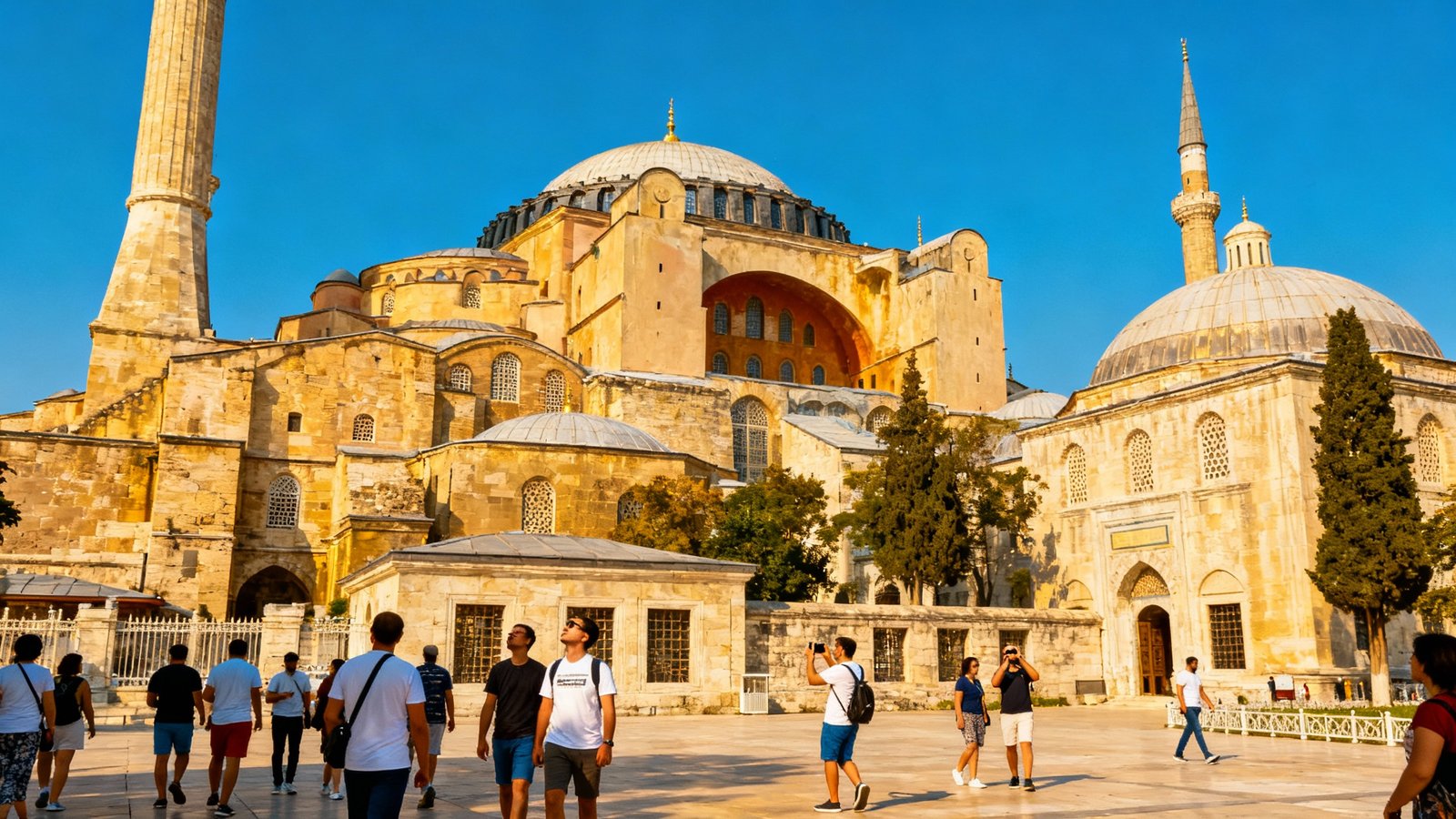
Blue Mosque
A few steps from Hagia Sophia, the Blue Mosque (Sultan Ahmed Mosque) rivals its neighbor in splendor and spiritual gravitas. Its cascade of six minarets and blue Iznik tiles are spellbinding, best admired from the serene central courtyard or the gentle shade of morning light.
While open to visitors outside of prayer times, Fridays and religious holidays bring crowds—a visit at dusk or shortly after the dawn prayer ensures quieter contemplation. Women should wear headscarves (provided free), and everyone should remove shoes before entering. Snap memorable photos from the adjacent Sultanahmet Park, and discover more about its ceremonies and architecture through Tripadvisor Blue Mosque reviews.
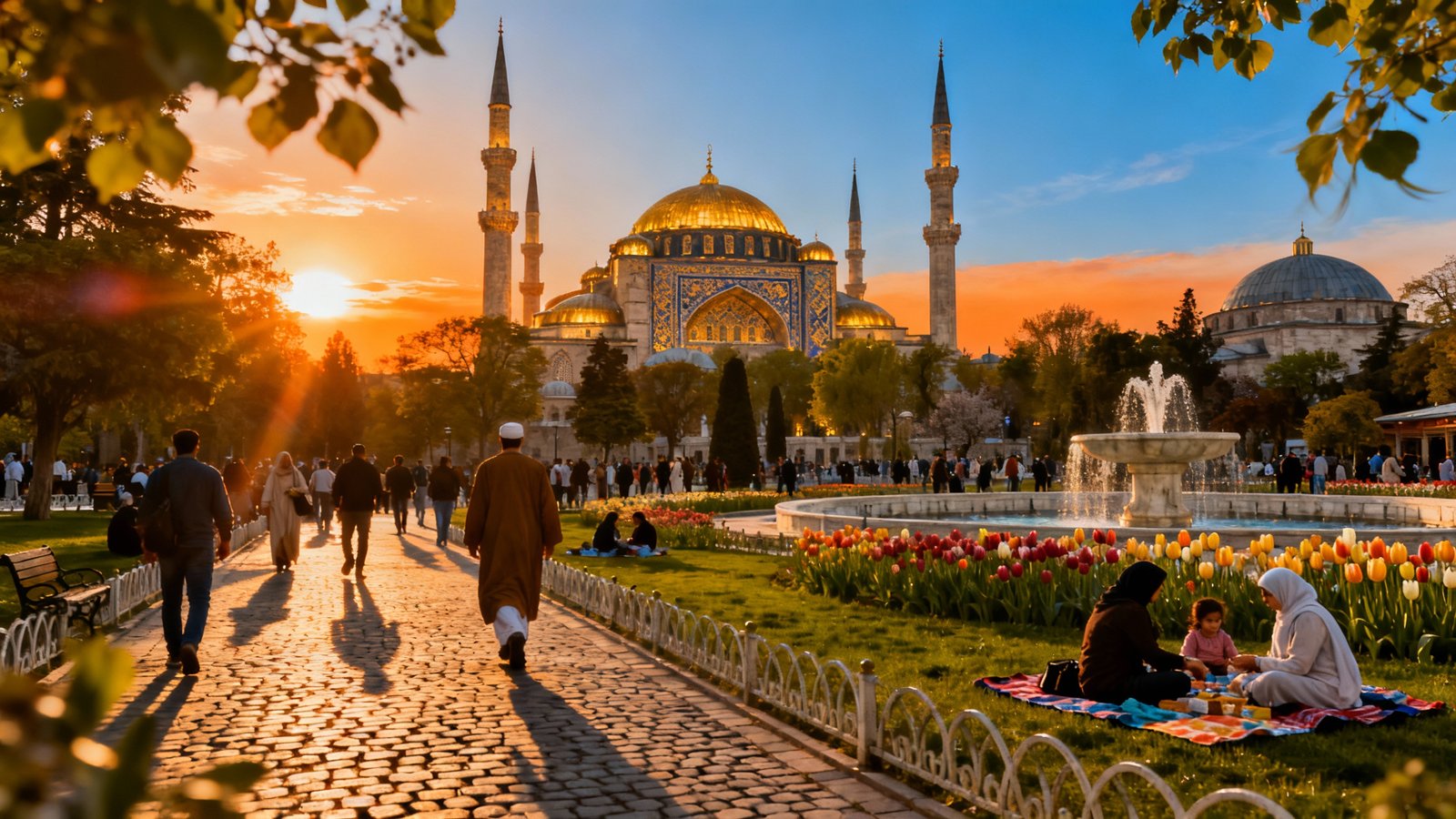
Topkapi Palace
Wander through centuries of intrigue and opulence at Topkapi Palace, seat of the Ottoman sultans for over 400 years. Meander among lush courtyards, peek into jewel-studded treasury rooms, and don’t miss the legendary Harem (a ticketed area). The palace’s panoramic terraces offer unmatched views of the Bosphorus and Golden Horn.
Give yourself at least two hours to appreciate its museums, kitchens, and sacred relic collections. Guided tours enhance the palace’s complex layers—book online to avoid the daylong queue. Learn more about opening hours and exhibitions from the Topkapi Palace Museum’s official site.
Grand Bazaar
For five centuries, the Grand Bazaar has hummed with life—a city within a city, crammed with more than 4,000 shops, narrow lanes, and the enticing fragrance of Turkish delight and leather goods. Whether you’re hunting for handcrafted rugs, antique jewelry, fragrant spices, or just a good deal, this covered market is an unforgettable sensory journey.
Haggling is an art form here, so brush up those bargaining skills, and allow yourself to wander off the main thoroughfares for quieter, more authentic finds. The Bazaar is safest (and least crowded) in the mornings, especially midweek.
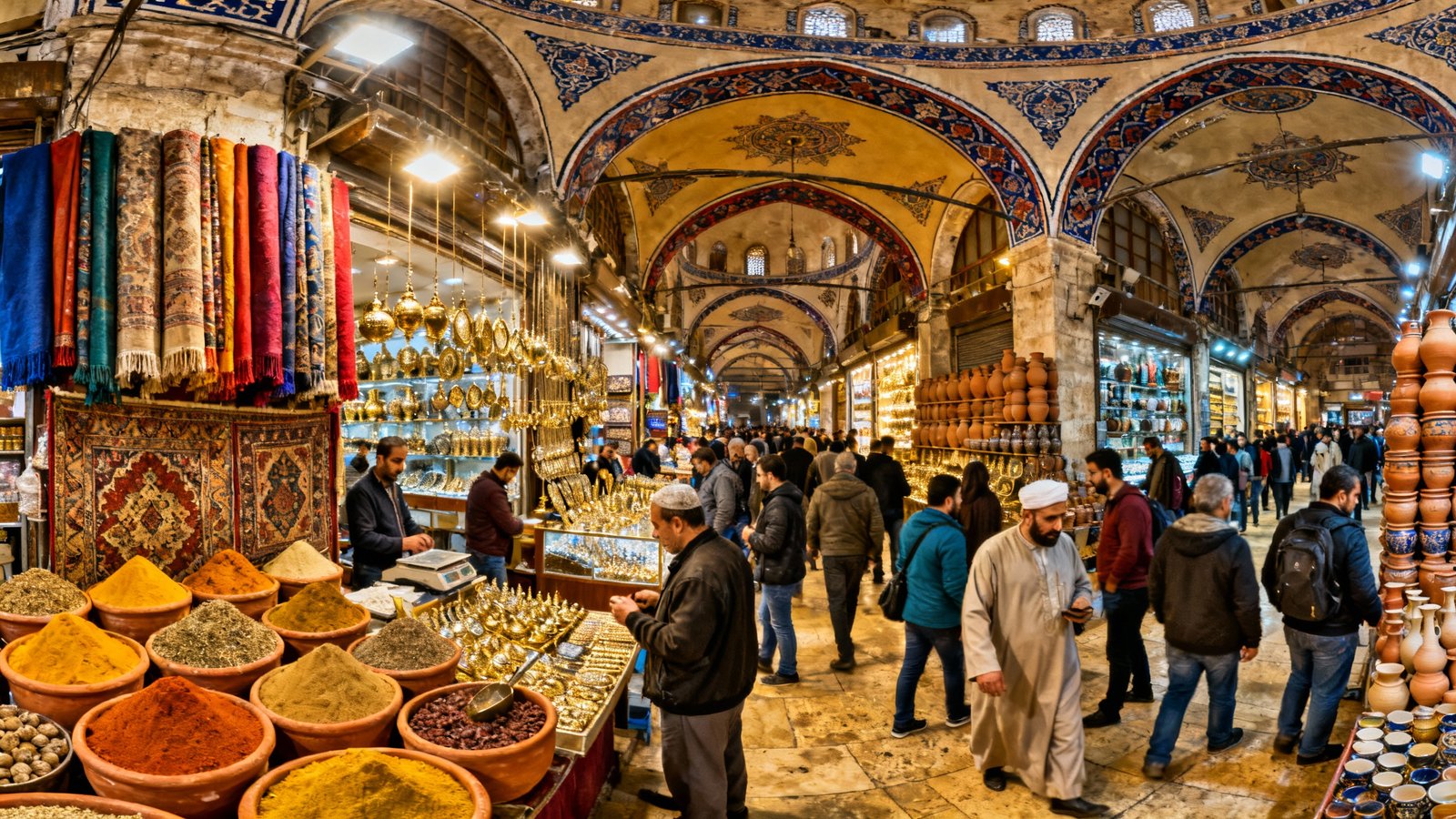
Spice Bazaar
Bursting with aromas from saffron to sumac, dried fruit to rose-infused Turkish delight, the Spice Bazaar is a feast for all senses. Built in the 17th century, it’s the perfect spot for edible souvenirs and immersing yourself in Istanbul’s spice trade legacy. Many stalls let you sample goods before you buy—don’t rush the experience, and remember to pick up fresh nuts or artisanal tea blends for the journey home. Find updated hours and stall listings on the official Spice Bazaar website.
Bosphorus Cruise
Sailing along the Bosphorus reveals Istanbul at its most cinematic—hilltop palaces, pastel waterfront homes, and minarets scattered across the sky. Ferries depart frequently from Eminönü; opt for a sunset or moonlight cruise for a bit of magic. Longer tours run all the way to the Black Sea, stopping at charming villages ideal for a lunch break.
Bring a light jacket: breezes on the water can surprise you. Short cruises offer the best views in under two hours, while dinner tours add local flavor with music and meze.

Galata Tower & Beyoğlu
Cross Galata Bridge and stroll up to the iconic Galata Tower, a skyline sentinel since medieval Genoese times. Its stone walls whisper tales of trade and intrigue, but the best reward is the panoramic deck view—rooftops rolling to the sea, domes and minarets gleaming, the endless swirl of ferries below.
Descend into lively Beyoğlu, home to art galleries, jazz bars, indie boutiques, and vibrant nightlife. Istiklal Street pulses with music and street performers, while side lanes hide atmospheric meyhanes serving raki and meze. Climb the tower for sunset if you can, but book ahead via the official Galata Tower page to skip the queue.
Istanbul’s Museums
Istanbul’s cultural treasures go beyond the famous trio. The Istanbul Archaeology Museum houses world-class artifacts—think Alexander the Great’s sarcophagus and mysterious cuneiform tablets. The Modern Art Museum in Karaköy offers a fresh, bold take on Turkey’s creative spirit, while Pera Museum reveals the Ottoman passion for painting and portraiture.
Kids and families love the Rahmi Koç Museum on the Golden Horn, dedicated to the city’s maritime legacy. Discover opening hours and current exhibitions at the official Istanbul Archaeology Museum site.
Turkish Food & Culinary Experiences
It’s impossible to talk about Istanbul without celebrating the food. Every district tempts with its own specialties: juicy kebabs sizzling over smoky charcoals in Beyoğlu, sweet stacks of baklava in Karaköy, the heavenly aroma of simit (sesame bread rings) sold from red-topped street carts. Don’t skip meze platters, rich lentil soups, fresh fish sandwiches under Galata Bridge, and taverns pouring strong Turkish coffee to fortify your wanderings.
Traditional restaurants share the stage with hip cafés and gourmet outposts—book a culinary stay at one of the city’s centrally located hotels to have these delights at your doorstep. Vegetarians and vegans will find abundant options, from hummus to Imam Bayildi (stuffed eggplant), especially in artsy Cihangir or Kadıköy.
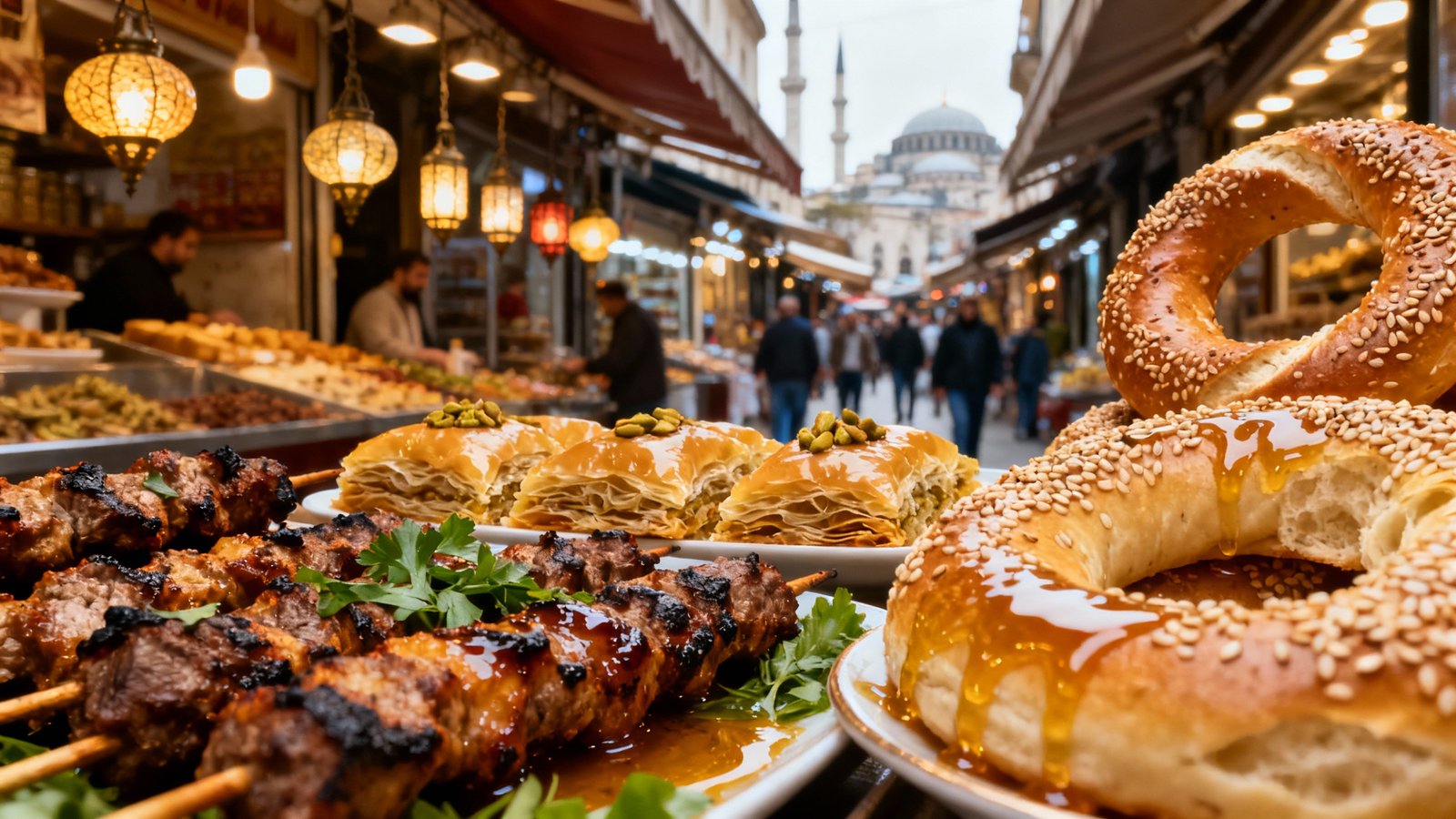
Best Food Tours & Local Experiences
Want to get hands-on? Culinary walking tours let you taste and learn your way through lesser-known neighborhoods, with expert guides revealing Istanbul’s food secrets. Whether it’s pastry-filled mornings in Beşiktaş, a seafood crawl along Kadıköy docks, or cooking classes with local chefs, these experiences give new meaning to Turkish hospitality. Secure a spot on a highly-rated gourmet food tour in Istanbul for unique tastings you’ll never forget.
Istanbul by Night
When the city lights flicker on, Istanbul embraces a different kind of magic. Rooftop bars and open-air terraces along the Bosphorus set the perfect stage for sunset cocktails, while historic mosques and monuments glow ethereally against the night. Beyoğlu’s taverns and jazz bars hum until late, and Bosphorus cruises become dreamy affairs with dinner and traditional music.
Look for live music venues in Kadıköy and vintage-style meyhane taverns on the Asian side for an authentic evening out. Nighttime walks past illuminated landmarks, from the Süleymaniye Mosque to Maiden’s Tower, are unforgettable.
Parks & Outdoor Spaces
When the city buzz feels overwhelming, retreat into one of Istanbul’s lush parks. Gülhane Park, once the sultans’ private grounds, now bursts with tulips and chestnut trees, just behind Topkapi Palace. Emirgan Park is famed for spring flower festivals and hilltop views while Yıldız Park mixes winding woodland trails with stately Ottoman pavilions.
On Sundays, locals flock to seaside parks for family picnics or late-afternoon tea, especially along the Bosphorus in Ortaköy and Bebek.
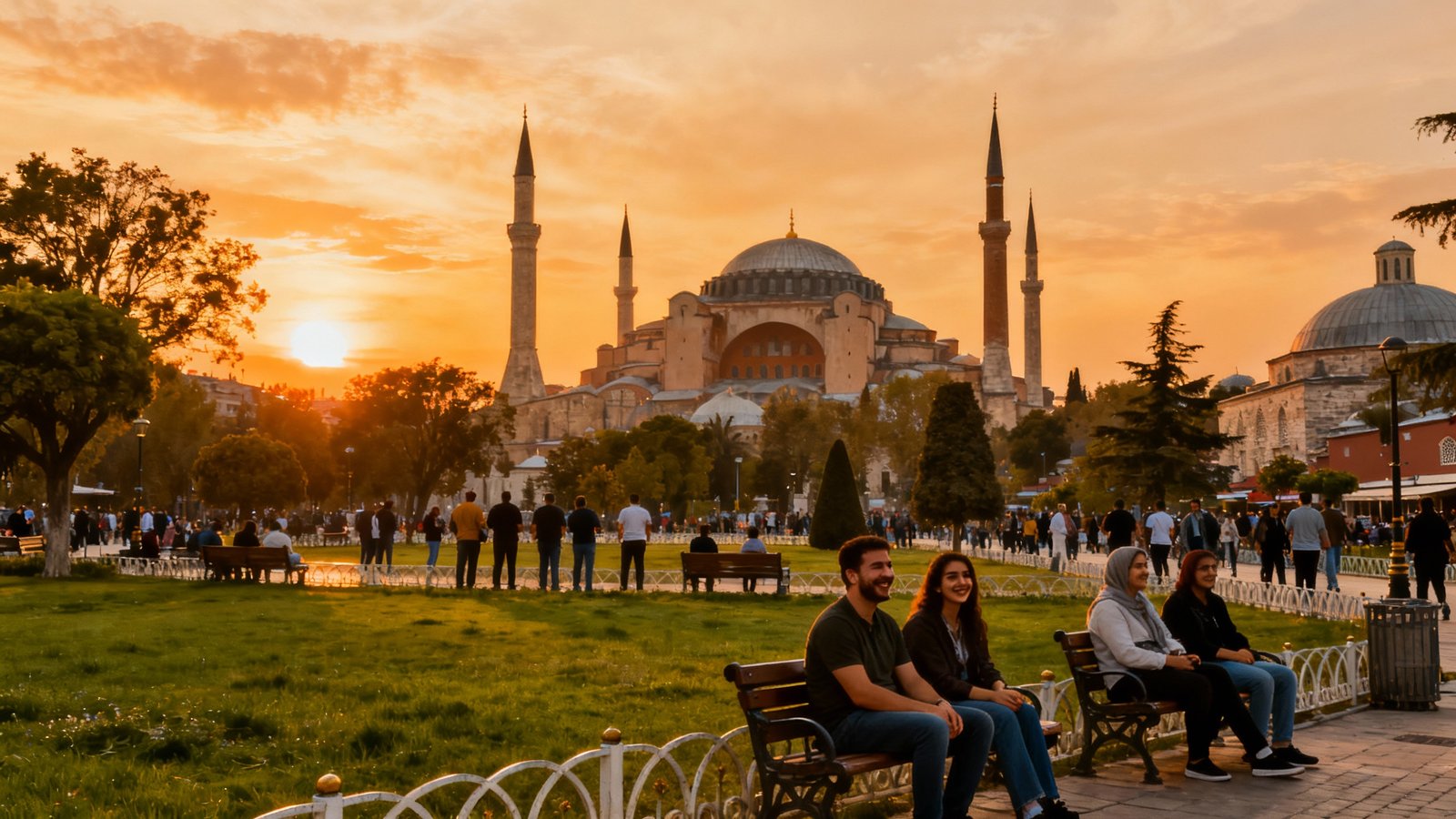
Day Trips from Istanbul
If you have more time, step outside the city for new adventures. The Princes’ Islands, a short ferry away, offer car-free tranquility, horse-drawn carriages, and old-world mansions. Historic Bursa, nestled in the shadow of Mount Uludağ, was the first Ottoman capital—its mosques and thermal baths are a daytripper’s delight. Edirne, famed for its grand Selimiye Mosque and baroque bridges, lies two hours west.
Ferry schedules are frequent year-round to the islands, and day tours make logistics simple. For more detailed planning, consult the Edirne city tourism page.
Practical Tips for Visitors
Getting the most from Istanbul means getting a handle on the basics. While Turkish Lira is the norm, many hotels and restaurants in tourist areas accept credit cards—though cash is still king in markets and smaller eateries. Save on commissions by using a trustworthy currency exchange service online. Istanbul is very safe, but pickpocketing does occur in crowded bazaars, so be vigilant with valuables.
Dress comfortably (layers work best) and modestly for mosque visits. Learning a few Turkish phrases, a friendly “Merhaba” or “Teşekkürler,” goes far in making connections. Istanbul’s tap water is officially drinkable, but most locals and visitors prefer bottled water.
Travel Insurance & Booking Essentials
Don’t travel without comprehensive insurance—this city’s a whirlwind, and unpredictable things can happen. Medical coverage and trip protection should be booked before you arrive, and can be browsed easily with leading travel insurance providers online. Tours and entry tickets to high-demand attractions (like Topkapi Palace or food crawls) should be reserved in advance during busy seasons.
Use reputable online platforms to compare tour experiences and ratings; you’ll often find great last-minute deals for unique excursions.
Sample Itinerary: 3 to 5 Days in Istanbul
Day 1: Begin in Sultanahmet. Visit Hagia Sophia, Blue Mosque, Topkapi Palace, and wander Gülhane Park. Sample meze in the evening and stroll the Bosphorus promenade.
Day 2: Dive into the Grand Bazaar and Spice Bazaar. Cross the Galata Bridge to Beyoğlu, climb the Galata Tower, and enjoy street food. Evening: explore Istiklal Street and sip cocktails on a rooftop bar.
Day 3: Take a morning Bosphorus cruise, stop for fresh seafood in Ortaköy, then experience contemporary culture in Karaköy’s galleries or the Istanbul Modern. Nightlife in Kadıköy or a jazz bar in Beyoğlu.
Day 4 (optional): Day trip to the Princes’ Islands or historic Bursa. Enjoy seaside picnics or uncover ancient mosques and unwind in a thermal bath.
Day 5 (optional): Explore Emirgan Park, the Istanbul Archaeology Museum, then shop for souvenirs at the Arasta Bazaar. Toast your trip with tea overlooking the city at dusk.
Conclusion
Istanbul is not only a crossroads of continents and cultures—it’s a living masterpiece. The city’s grand mosques, labyrinthine bazaars, and sweeping views along the Bosphorus blend seamlessly into modern galleries, ecstatic street food, and local warmth found nowhere else. Every corner holds a story, every meal comes with an invitation, and every sunset brings a new layer of beauty to discover.
Now, more than ever, is the perfect time to experience Istanbul’s sights, scents, and soul. Let yourself get swept up in the city’s rhythm—plan your dream getaway with the smart booking tools available from TripVista360 for a journey you’ll treasure forever.
FAQs
1. What is the best time of year to visit Istanbul?
Spring (April–June) and fall (September–November) offer pleasant weather and fewer crowds. Summer has lively festivals but can be hot and busy.
2. How many days do I need in Istanbul?
Three to five days lets you see main sites and enjoy local neighborhoods. Add extra days for day trips or relaxed exploration.
3. Do I need a visa to visit Istanbul?
Most travelers need an e-Visa, which can be acquired online. Check your country’s requirements in advance.
4. Is Istanbul safe for tourists?
Yes, Istanbul is generally safe. Like any big city, stay alert in busy areas and use official taxis or transport.
5. What is the best area to stay in Istanbul?
First-timers love Sultanahmet for historic sights, while Beyoğlu and Karaköy offer lively nightlife, shopping, and dining.
6. Can I use public transportation with an Istanbulkart?
Absolutely! Istanbulkart works on trams, metros, buses, and ferries—just top it up at kiosks or stations.
7. What food should I try in Istanbul?
Don’t miss kebabs, meze, baklava, kokoreç, and local breakfast. Street food is safe and delicious.
8. How should I get local currency?
ATMs are widespread, but for better rates and savings, an online currency exchange service is highly recommended before arrival.


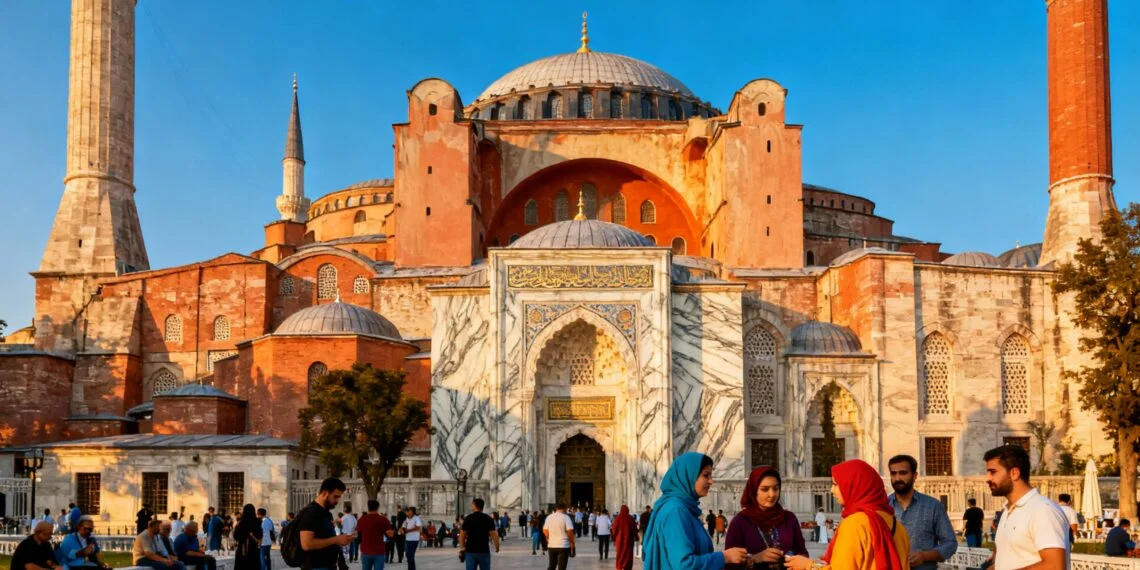
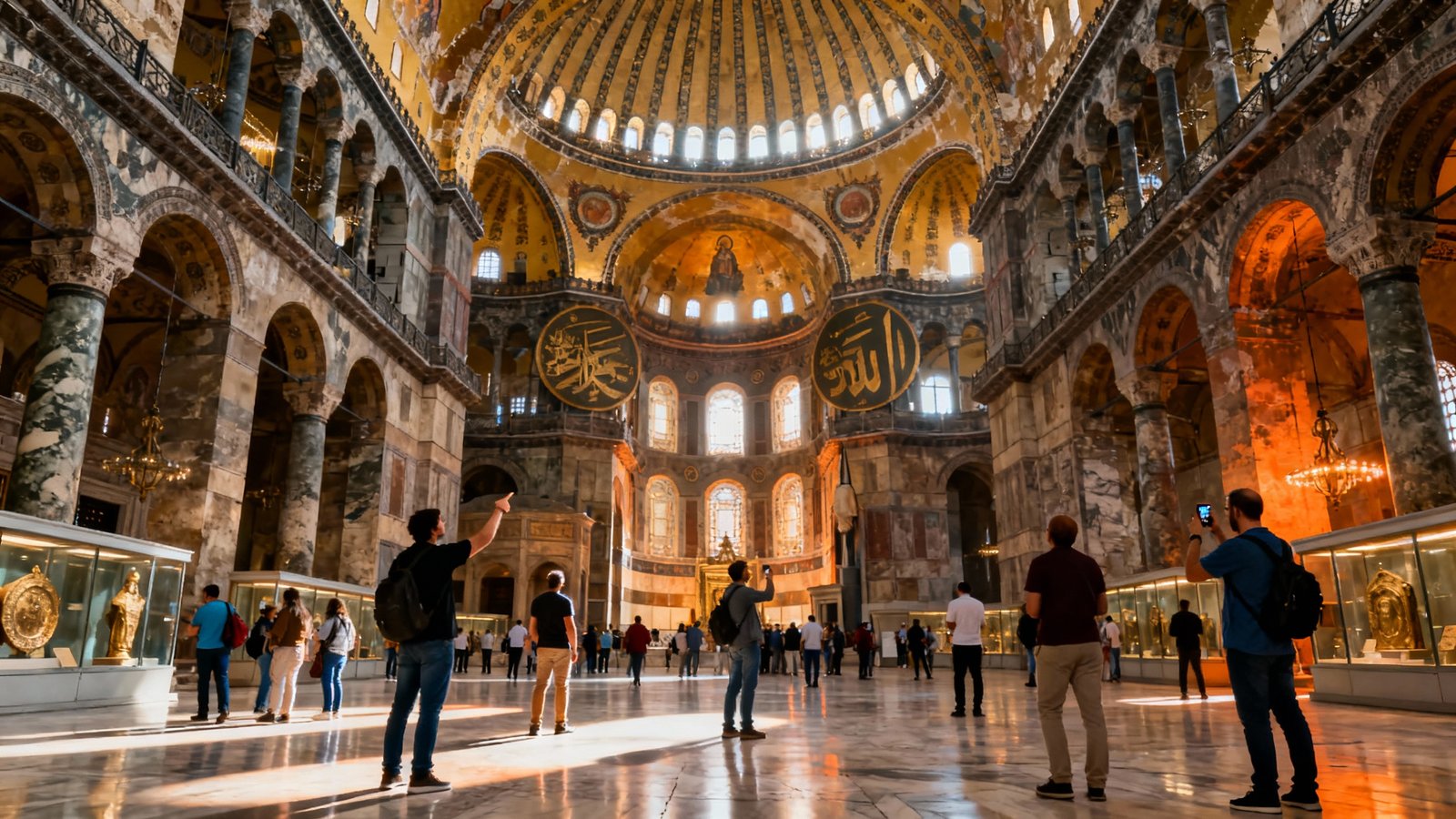 Introduction
Introduction
